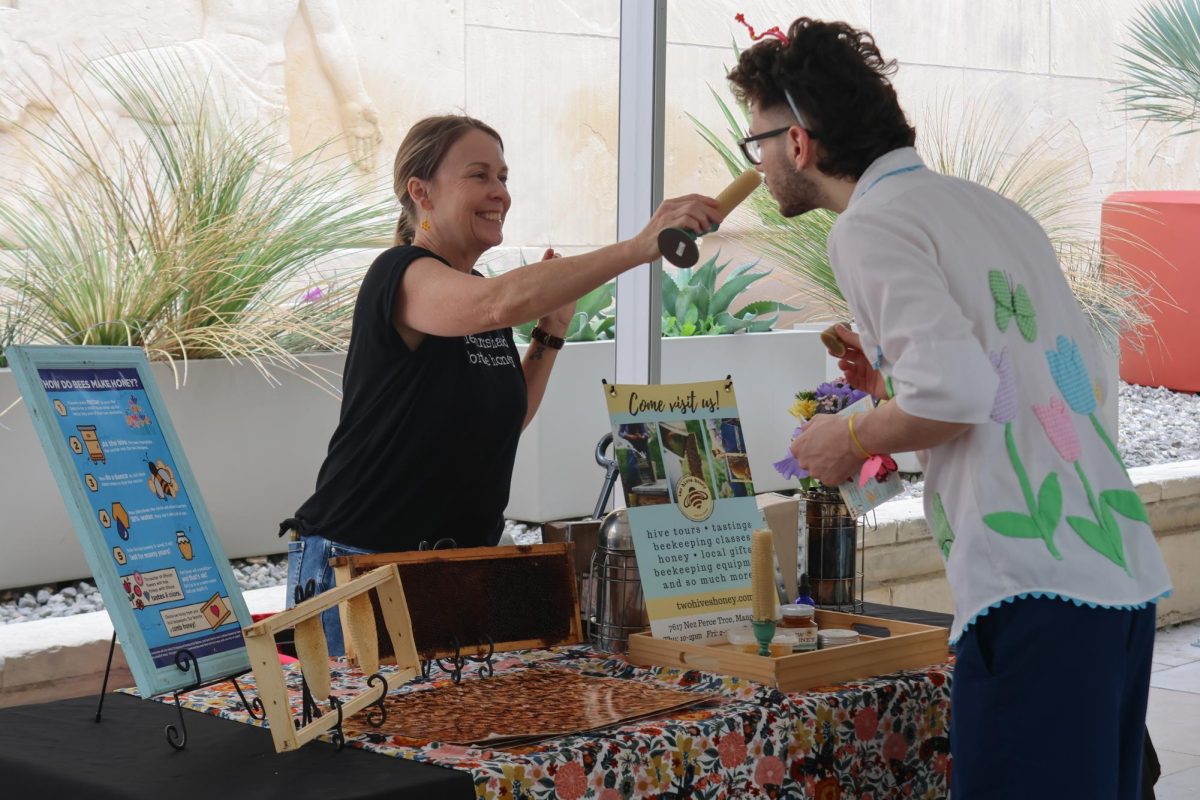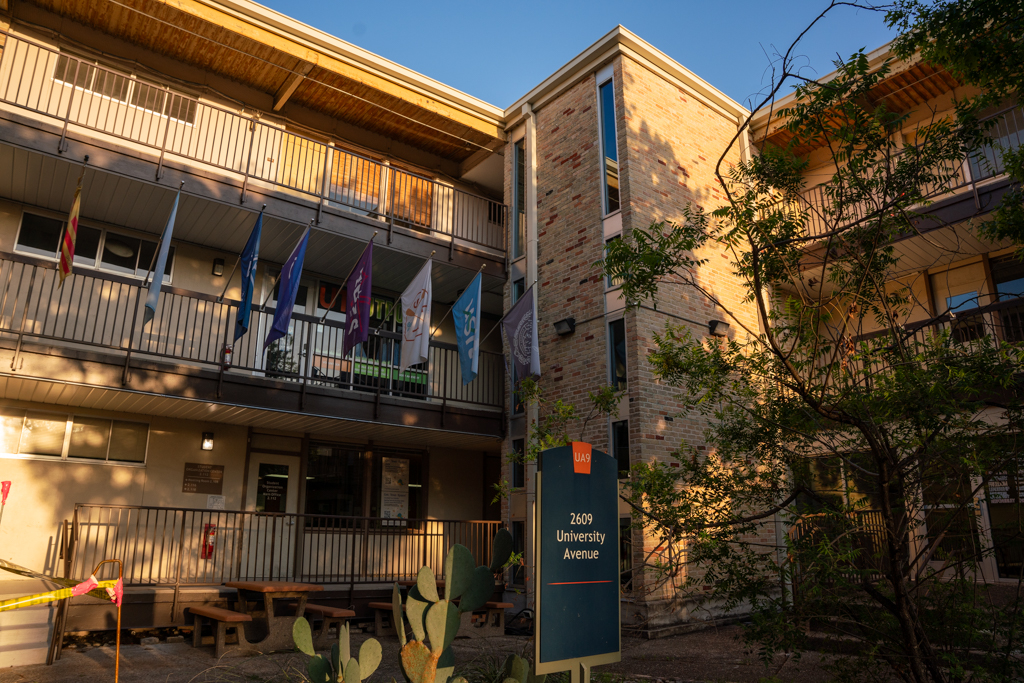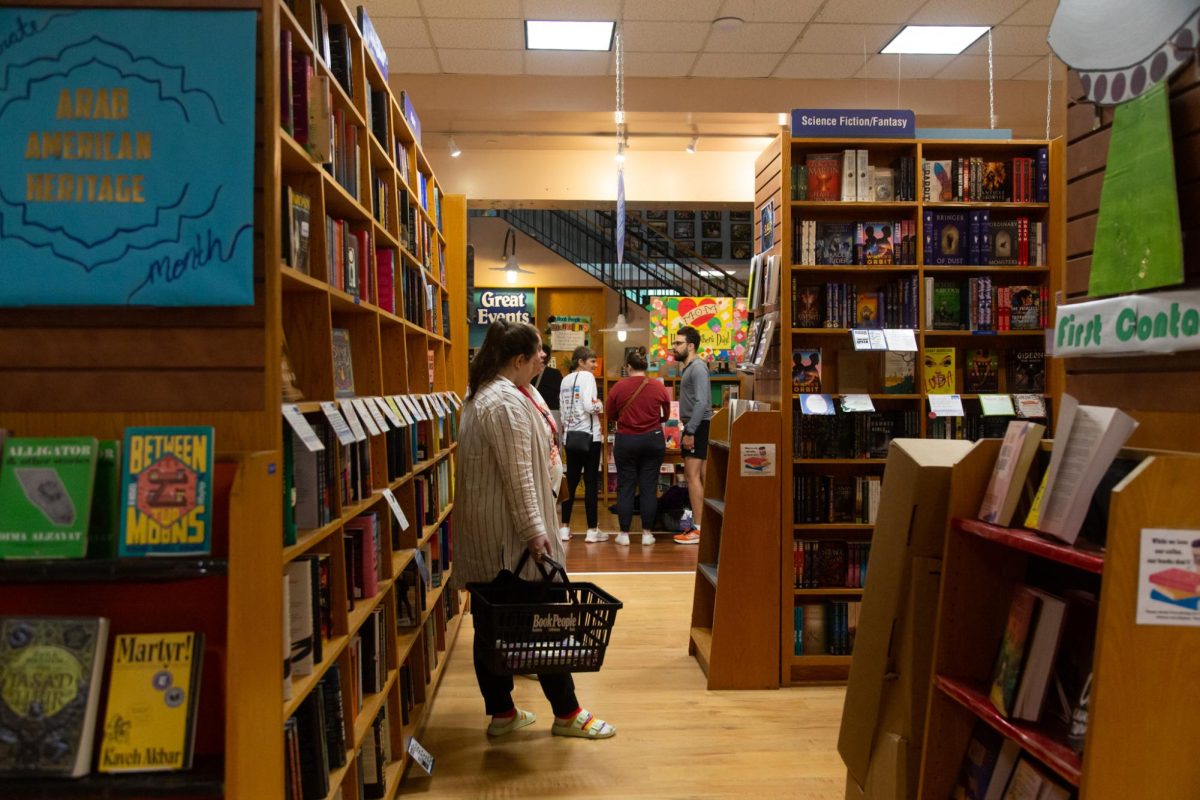The Texas Science and Natural History Museum hosted Pollinator Day on Saturday, a spring celebration promoting education and awareness of pollinators within the Texas ecosystem.
During its extensive renovations, the museum collaborated with The Lady Bird Johnson Wildflower Center and UT landscaping services to create pollinator gardens outside the main entrance of the museum. Pamela Owen, associate director of the museum, said the influx of bees, butterflies and hummingbirds brought in by the pollinator gardens inspired the event.
“When we talk about wildlife and when we talk about pollinators, these big general terms, we want (young learners) to make connections to things like butterflies or bees,” Owen said. “As human beings, we interact with our world differently, and so we want to be able to provide as many avenues as possible for learning.”
Pollinator Day featured an interactive and family-friendly “What Did I Learn?” board where participants reflected on the knowledge gained from the event. Museum education intern Kira Reyna said the feedback provided by attendees helps the museum team to see which activities are most effective for teaching.
“Events like these are so exciting because they can draw in people who may not have known about the museum,” said Reyna, a human development and family sciences senior. “They hear about the event, and they’re able to come and see something different like pollinator day, but then they can see all of our other exhibits, and it will motivate them to come back.”
A recent study by Climate Central found that Austin’s springtime temperatures have increased by an average of 3.4 degrees since 1970. History sophomore Meredith Perry said events like Pollinator Day are important because they inform the public about pressing issues like environmental sustainability.
“It is very important to know just what kind of sustainability issues and environmental issues we’re dealing with today because we can make a difference,” Perry said. “An event like this (is) making people think about it and making people leave and remember things that they learned here, it’s really important to get them motivated to try and combat it.”
The museum is open from 10 a.m. to 5 p.m. Tuesday through Saturday, and from 1 p.m. to 5 p.m. on Sunday. All UT students, faculty and staff receive free admission with a current ID.














